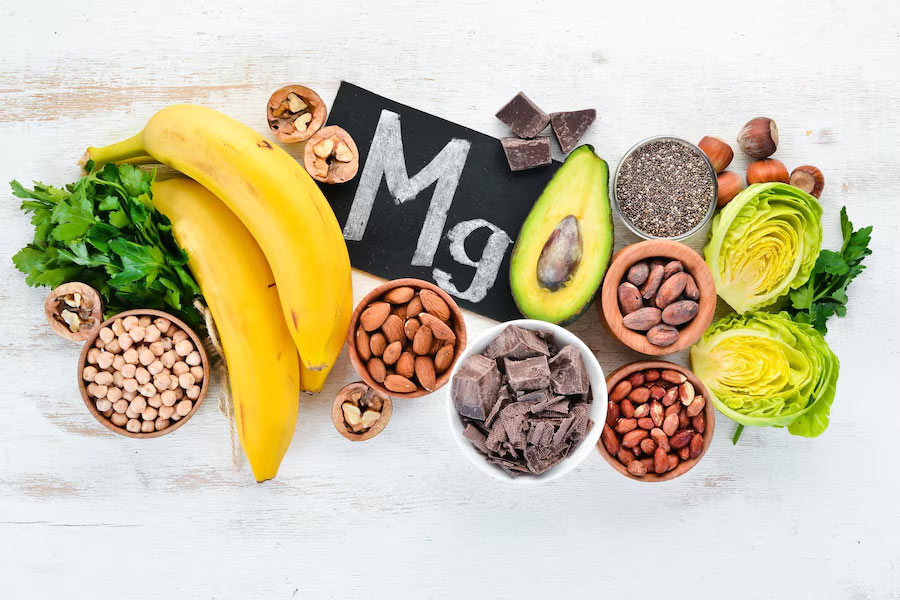
As we age, maintaining brain health and memory becomes a priority. Magnesium, an essential mineral, plays an imperative role in enhancing cognitive function and protecting your memory. From boosting memory retention to even managing chronic pain, magnesium brings innumerable benefits to the table.
Table of Content:-
To look at how this wonder mineral can protect your memory with age, we at OnlyMyHealth spoke to Dr. Anshu Rohatgi, Vice-Chairperson, Neurology, Sir Ganga Ram Hospital, New Delhi.
RELATED: Warning Signs Of Magnesium Deficiency: Pain Areas That Demand Attention
What Is The Link Between Magnesium and Brain Health?

Magnesium contributes significantly to brain health by improving various cognitive functions. As per Dr Rohtagi, elevated brain magnesium levels can,
- Enhance learning abilities.
- Boost both short-term and long-term memory.
- Improve working memory and cognitive flexibility.
- Regulate neurotransmitters and enhance synaptic plasticity, critical for communication between brain cells.
Dr Rohtagi says, “Magnesium also has a good effect in the memory of older individuals and it has an effect by improving the overall cognitive scores, preventing cognitive fluctuations. And this effect has been seen more in women and people who are aged 50 to 70 years of age.”
Our expert also highlights that a study revealed that consuming over 550 mg of magnesium daily is associated with a brain age one year younger at age 55 compared to consuming the average daily intake of 350 mg. Interestingly, these benefits are observed more prominently in women than men.
Why You Should Include Magnesium in Your Diet
Including magnesium in your diet can help improve memory and cognitive scores, particularly in individuals aged 50 to 70. Regular magnesium intake reduces cognitive fluctuations and supports brain function in ageing populations.
To increase magnesium in your diet, you can consume magnesium-rich foods, as suggested by Dr Rohtagi;
- Pumpkin seeds: One of the best sources of magnesium.
- Almonds: A nutritious snack with ample magnesium content.
You can also take magnesium supplements; over-the-counter options are readily available, but consulting with a healthcare professional is recommended. For vegetarians, these natural sources are especially beneficial as they align with plant-based diets.
RELATED: Magnesium May Help Relieve Period Pain: How To Get Optimum Levels
Other Evidence-Backed Benefits of Magnesium

Beyond memory and cognitive improvement, magnesium offers a wide range of health benefits backed by research, here are a few notable benefits.
- Magnesium is known to reduce the frequency and intensity of migraines.
- It plays a role in alleviating symptoms of depression and anxiety.
- Evidence suggests magnesium can help manage chronic pain conditions.
- While more research is needed, magnesium shows promise in treating neurological disorders like Parkinson’s and Alzheimer’s diseases.
- Preliminary studies highlight magnesium’s role in reducing the risk of stroke and improving outcomes post-stroke.
Moreover, magnesium’s impact on epilepsy and its potential as an adjunct treatment in neurological conditions continues to be a promising area of research.
Consume Magnesium With Caution
While magnesium has numerous benefits, overconsumption can lead to complications. High levels of magnesium may affect potassium metabolism, potentially harming heart health. Therefore, it’s essential to maintain a balanced intake.
Dr Rohtagi says, “For individuals with Alzheimer’s disease, studies suggest that magnesium may play a protective role in slowing cognitive decline. However, maintaining the correct dosage is crucial to avoid adverse effects.”
How Much Magnesium Do You Need?
Age, gender, and medical problems all affect the amount of magnesium that should be consumed each day. Adults should consume 400–420 mg per day for men and 310–320 mg per day for women. Higher doses, as demonstrated by studies (550 mg), might be advantageous for brain health, nevertheless.
Bottomline
Magnesium is a powerful ally in protecting your memory and enhancing cognitive function as you age– by improving neurotransmitter signalling, synaptic plasticity, and overall brain health, magnesium supports both short-term and long-term memory. Incorporating magnesium-rich foods like pumpkin seeds and almonds or opting for supplements (under professional guidance) can make a significant difference in your brain health.
Also watch this video
How we keep this article up to date:
We work with experts and keep a close eye on the latest in health and wellness. Whenever there is a new research or helpful information, we update our articles with accurate and useful advice.
Current Version